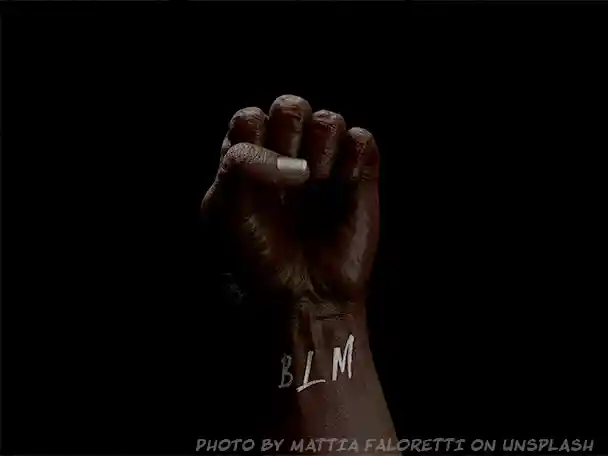Black lives matter: Why we need more conversations about colour
At a time when the world needs Black voices more than ever, how can we help drive equality across voice tech?
If you ask Siri, Alexa or Google whether Black lives matter, they’ll tell you they do. They’ll even counter the common ‘all lives matter’ refrain and might even point you towards the proof online. But are the middle-class, North American voices they use part of the problem? What about the voices you hear in IVRs and voicebots across contact centres?
When it comes to choosing voice talent or creating a human-like digital voice, there are many considerations. Does the voice sound trustworthy? Likeable? Is it energetic and engaging enough? Regional accents and dialects will be considered based on their perceived friendliness and relatability. Ethnicity rarely plays a part, if at all.
While race isn’t a defining factor in any of the above criteria, voice-based communications aren’t colour blind. As with many areas of life, Black voices are woefully under-represented.
Research into voice preferences generally focuses on male or female, real or synthetic and high or low pitch. For example, the pitch of a woman’s own voice predicts their preference for masculinity in men’s voices. Both men and women prefer a female-gendered synthetic voice.
But data isn’t always the deciding factor.
Because the final say on voice casting and synthetic voice development is often made by senior stakeholders, inequality within organisations has likely played a role in the proliferation of white voices in these areas. As has been historically true of corporate recruitment and career advancement, white executives are often more likely to choose the familiar. The voices that sound like their friends and family. As a result, unconscious bias has served to deliver white voices for white people.
And that bias, is a key factor.
Stanford University research in 2019 identified that voice recognition tools from companies including Google, Apple, Amazon and Microsoft find it harder to understand black voices. Innovation moves at lightning speed in Silicon Valley, but this is likely the result of such systems historically being ‘taught’ by white voices, with a lack of diversity present in the samples analysed by their algorithms.
These unintentional yet impactful actions are at the root of the diversity challenges the world faces. Across all business areas, more must be done to counter hidden prejudices and drive equality beyond a simple box-ticking exercise.
Our sector has a key role to play.
Mazaru and others like us can mobilise to help counter these underlying trends and act to drive better representation for Black voices in voice tech. This will ultimately help the brands we support to do the same.
We, as an agency and a sector, need to think more about what we’re overlooking and what we can do to effect change.
In January – pre-pandemic and ahead of the death of George Floyd – we were in the last stages of delivering a CX project for a global travel brand. This included finding a new voice for their IVR. We had pitched a young, talented voice artist – he was a perfect fit for the brand, their customers and their ethos. He was also the first Black voice artist we’ve seen selected for a big brand IVR project. It’s a shocking fact that serves to highlight just how much work there is to do.
If business as usual means a lack of diversity, traditional approaches need to change.
Our internal discussions are ongoing, but as first steps these are some of the actions we at Mazaru will be taking to help drive change:
- Build up our portfolio of Black voice artists to ensure more equal representation across digital and voice tech.
- Have conversations with Black voice artists – understand more about the specific blockers they face in seeking work and what they need from us to support them.
- Initiate conversations with clients, to help them be more diverse in their use of voice talent in digital conversations.
We don’t want to end things there. We want to help drive change much faster.
Our internal conversations about BLM have generated more questions than answers.
We believe those conversations should continue beyond our walls, to ensure the action we take is fast, impactful and permanent.
With that in mind, we want to hear from you:
- What initiatives do you have underway, to help all of us hear more Black voices across our sector?
- What do you need to see from agencies like Mazaru, to help drive more equality in the use of voice talent in voicebots and IVRs?
- What questions do you have and how can we collaborate to find answers and drive change faster?
These are challenges that can’t be solved overnight but must be dealt with at speed.
Social media only has so much patience and t-shirts and slogans will only get us so far.
By working together, we can keep racial inequality front of mind and a part of all our conversations.
Drop me a line at hello @mazaru.com, I would love to hear your thoughts.

